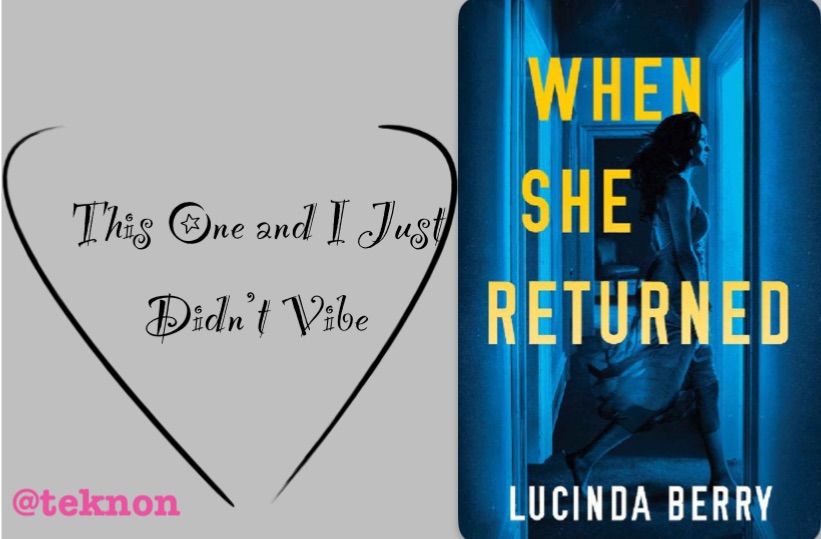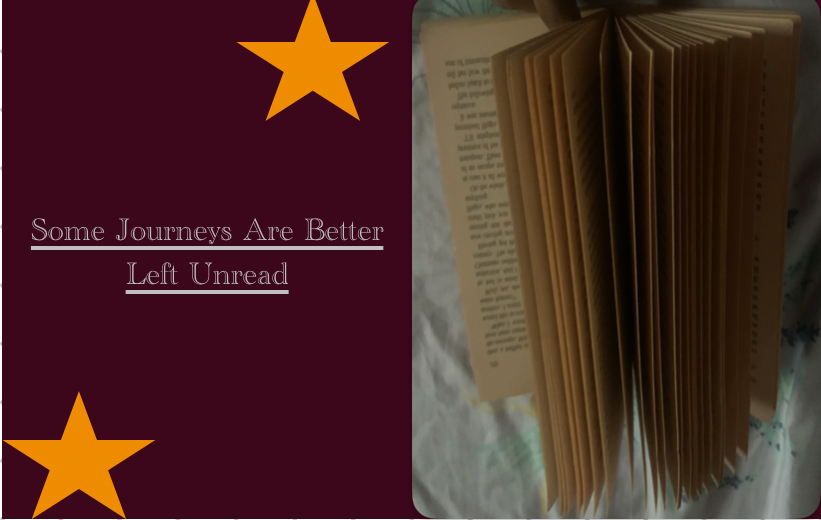I hate to say it, but sometimes a book lures you in with the promise of being a thriller and then refuses to thrill. Well that’s exactly how I felt trudging through Lucinda Berry’s *When She Returned*. It dragged far more than I had patience for, and the only reason I didn’t dump it midway was sheer curiosity about what really happened to Kate. Imagine investing hours into a book, anticipating a mind-blowing climax, only to get there and realize it wasn’t mind-blowing at all. What could be more upsetting than that?

Here’s the plot in a nutshell:
Kate vanished years ago, leaving behind her husband, Scott and daughter, Abbi. Out of the blue, she reappears, cradling a child who is revealed to be hers. After some investigations, it turned out she’d been living with a cult called Love International. From there, the narrative spins between her family trying to make sense of her return.
If you’re expecting spine-tingling suspense, please brace yourself for disappointment because the only moment that genuinely thrilled me was the prologue. Everything else? Slow, repetitive and stretched beyond necessity.
I’m not a bitter critic so I’ll give credit where it’s due:
Berry does not shy away from exposing abuse in its rawest form. The book showcases how cult leaders manipulate victims, stripping them of individuality and bending them into obedience. What really stood out was the way she explored the psychological hold abusers have on their victims. Kate, despite her suffering, still harbored that inexplicable urge to return to her abuser, a man who identified himself as Ray. This is a behavior that aligns with what psychologists call trauma bonding (a term Patrick Carnes popularized) or even Stockholm Syndrome. Victims often develop emotional attachments to their abusers because the cycle of reward and punishment blurs the line between love and control. Watching Kate embody this pattern was frustrating, but also chillingly realistic.

That said, realism alone isn’t enough to carry a 528 page thriller. While the novel highlights important conversations about psychological abuse and the aftermath of trauma, it fails spectacularly in terms of pacing and payoff. For a book marketed as a thriller, the tension was inconsistent, the twists were predictable and the resolution underwhelming. By the end, I didn’t feel the rush I craved. Imagine reading a supposedly “good psychological suspense novel” only to get to the final page and let out a tired sigh of “finally, it’s over.”
Anyway, if you’re by any chance looking for a book that sensitively depicts the complexities of abuse and its lingering effects, *When She Returned* has some merit. But if you’re here for an edge-of-your-seat thriller, just keep moving because this one crawls when it should sprint.
@jhymi pardon me for recommending this to you. It’s not good enough.
Rating? 2/5.
Lucinda Berry’s When She Returned || A Tired Sigh Of "Finally it’s Over”
@teknon
· 2025-09-13 20:11
· Hive Book Club
#bookcriticism
#creativecoin
#pob
#palnet
#qurator
#msp
#pimp
#waivo
#neoxian
Payout: 2.791 HBD
Votes: 96
More interactions (upvote, reblog, reply) coming soon.